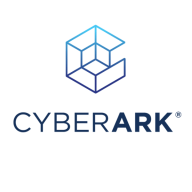

CyberArk Endpoint Privilege Manager and Zscaler Zero Trust Exchange Platform compete in the realm of security solutions, with CyberArk being more recognized for its enhanced control over administrative privileges and Zscaler for its strong cloud integration capabilities. CyberArk seems to have the upper hand due to its superior integration with enterprise infrastructures, which enhances security more significantly.
Features: CyberArk Endpoint Privilege Manager offers granular access control, credential detection, and automated password management, which are key in reducing risks associated with admin rights. Zscaler Zero Trust Exchange Platform provides robust security with features like VPN alternatives, integrated security protocols for web and application access, and ease of deployment across cloud environments.
Room for Improvement: CyberArk Endpoint Privilege Manager should enhance user interface simplicity, accelerate performance, and improve integration with other security tools. It also needs better Linux support and more customizable policy management. Zscaler Zero Trust Exchange Platform faces issues with latency, high pricing, and lacks detailed policy configuration. Better support and enhanced reporting features are necessary and deployment flexibility in multi-tenant environments could be improved.
Ease of Deployment and Customer Service: CyberArk Endpoint Privilege Manager supports hybrid, on-premises, and cloud deployments but faces a learning curve and slow support response times. It requires technical expertise that often leads to reliance on support. Zscaler provides flexible cloud-based deployment and is noted for its user-friendliness, though support still needs improvement to meet growing demands. Both products receive similar customer satisfaction rates; however, CyberArk could lessen certification hurdles for support access.
Pricing and ROI: CyberArk Endpoint Privilege Manager is often seen as costly, aimed at large enterprises, yet delivers significant ROI through better security and resource efficiency. Zscaler Zero Trust Exchange Platform also presents high cost concerns, primarily due to its gateway pricing model though it offers valuable feature integration. Despite the expense, both platforms offer scalability with Zscaler catering to large user bases, providing efficient security and operational benefits.
Deploying CyberArk Endpoint Privilege Manager has secured the infrastructure, which saves money, time, and resources.
They respond immediately to our inquiries, resolve issues promptly, and provide valuable guidance, especially in critical situations.
We engage them when needed and receive prompt responses that typically resolve our issues.
Earlier, we received support for normal tickets within a day, but now it takes one or two days to resolve issues.
Sometimes, support takes time since the solution has some bugs that need fixing.
We can set permissions per team or department, allowing some teams to elevate specific applications while others have different permissions.
CyberArk Endpoint Privilege Manager is quite scalable.
The available reports and other security tools assist in scaling it according to my organization's needs.
It is a robust solution that has effectively supported our environment without major issues.
Since implementing it, we have not experienced any outages or stability issues.
CyberArk Endpoint Privilege Manager offers multiple options for creating and stopping policies.
CyberArk Endpoint Privilege Manager could be improved by simplifying the administration process, specifically when setting up policies and applications.
Currently, no user-based policy option is available inside the EPM console.
Some features provided in the self-hosted version of EPM are not supported in the software as a service version, like connection to some analysis applied by Palo Alto.
They might be able to identify if something is missing with Zscaler.
CyberArk Endpoint Privilege Manager is slightly expensive, but costs can be negotiated to become more competitive.
CyberArk Endpoint Privilege Manager is costly compared to other solutions.
I've received feedback that the pricing is high, however, for me, the value it brings is worth the cost.
CyberArk Endpoint Privilege Manager effectively reduces malicious content in applications by allowing us to identify and block dangerous applications.
CyberArk Endpoint Privilege Manager enhances computer security by providing minimal access, effectively preventing ransomware attacks.
The most valuable feature is the ability to control users with admin rights.
The solution is cloud-based with the latest inspection engines, which I find to be amazing.


CyberArk Endpoint Privilege Manager, a critical and foundational endpoint control addresses the underlying weaknesses of endpoint defenses against a privileged attacker and helps enterprises defend against these attacks through removing local admin rights, enforcing least privilege, and implementing foundational endpoint security controls across all Windows, macOS and Linux endpoints from hybrid to cloud environments.
Click here for a free 30 day trial: CyberArk Endpoint Privilege Manager free trial
Zscaler Zero Trust Exchange Platform acts as a VPN alternative for secure remote access, cloud protection, and zero-trust strategies. It enables secure data transmission, supports remote work, and enhances compliance through a cloud-based architecture, offering improved performance and simplified management.
Designed for organizations seeking secure application access and robust data protection, Zscaler Zero Trust Exchange Platform delivers a comprehensive solution through seamless VPN connectivity, data loss prevention, and SSL inspection. Its cloud integration ensures scalability and reliability, while its interface provides intuitive management. Companies benefit from automatic secure access, minimizing constant authentication needs, and safeguarding sensitive data. The platform allows easy deployment and integration with diverse identity providers, granting granular control for access and application segmentation. Despite powerful capabilities, enhancements are needed in speed, bandwidth, and legacy support, with users noting interface and configuration challenges.
What are the key features of Zscaler Zero Trust Exchange Platform?In specific industries, Zscaler Zero Trust Exchange has been implemented to enhance security protocols in fields like finance and healthcare. By prioritizing data protection and compliance, it assists companies in safely managing sensitive information and meeting regulatory requirements. Organizations leverage its features to ensure secure operations across remote and cloud environments, adapting to industry-specific needs with customizable access and security controls.
We monitor all Application Control reviews to prevent fraudulent reviews and keep review quality high. We do not post reviews by company employees or direct competitors. We validate each review for authenticity via cross-reference with LinkedIn, and personal follow-up with the reviewer when necessary.